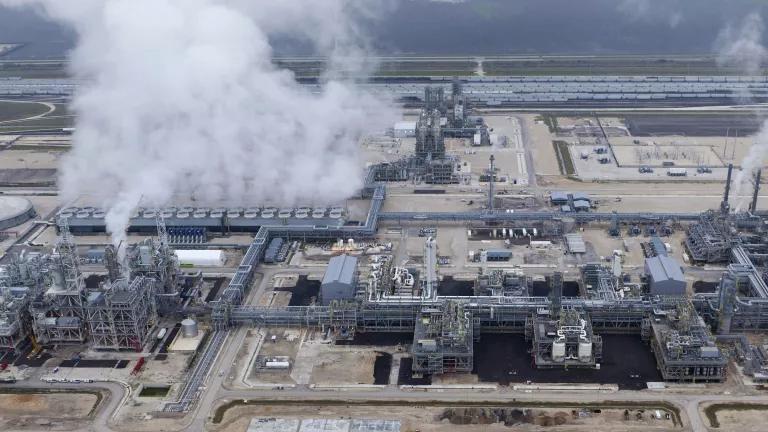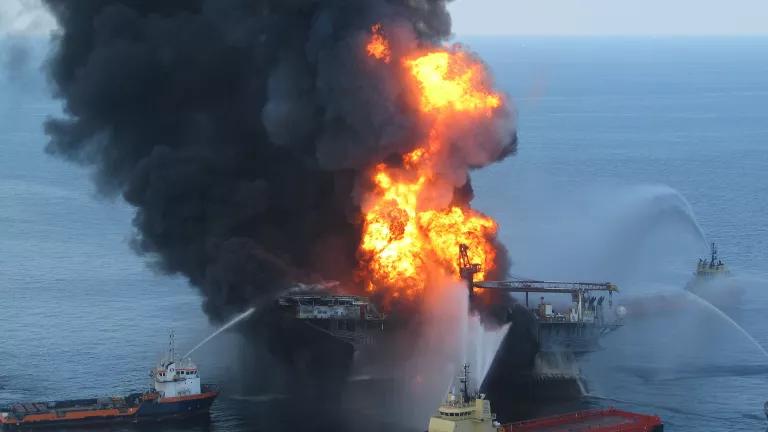The State Department draft environmental review of the Keystone XL tar sands pipeline shows how TransCanada, the American Petroleum Institute and other proponents of the pipeline have been vastly overstating the number of jobs that will be created by this dirty energy project. This creates unfair expectations among workers who need jobs, not empty promises from the oil industry. The State Department, based on TransCanada’s own numbers, shows that at the most 3,900 construction jobs will be created in building the pipeline with only 10 percent of the total workforce hired locally. Only 35 permanent jobs will be created by the pipeline. What is more, the State Department dismisses the evidence that Keystone XL is actually bad for the economy and many workers.
Keystone XL will run from Canada, across America’s breadbasket, to the Gulf Coast where tar sands will be refined and much of it will be exported so that the oil companies can enjoy the higher prices of international markets. The State Department’s draft review does not take the economic well-being of farmers and communities along the pipeline path into account, neglecting to assess the potentially negative impacts of pipeline spills, spills into freshwater supplies or increases in climate and other pollution on employment and the economy, as was done by the Cornell Global Labor Institute. Farming, ranching, and tourism are major sources of employment along the Keystone XL pipeline's proposed route - approximately 571,000 workers are directly employed in the agricultural sector in the states along the Keystone XL corridor. Water contamination resulting from a Keystone XL tar sands spill, or the cumulative impact of spills over the lifetime of the pipeline, would have significant economic costs.
We can do better for our workers and economy than a dirty energy project such as the Keystone XL tar sands pipeline. As a result of our clean energy industry’s rapid growth and effective state and federal policies, clean energy projects and programs currently in progress are creating thousands of jobs in communities across the country without the risk. And many more shovel ready projects could be brought online if our policymakers are willing to send clear market signals and level the playing field for clean energy options to move forward.
A new report from Environmental Entrepreneurs, an organization that represents over 800 business leaders, shows that companies and communities announced more than 300 clean energy and clean transportation projects in 2012 that are expected to create 110,000 jobs. These jobs are helping to revive manufacturing in states like North Carolina and Ohio, cutting energy costs for homeowners and businesses, and scaling up new industries like clean vehicle manufacturing.
Take for example companies like Energetx, a wind blade manufacturer in Holland, MI which added 100 jobs in 2012 and expects to hire up to 1,000 by 2016; Global Green Lighting, a pioneering manufacturer and installer of radio-controlled LED lighting systems in Chattanooga, TN’s parks and neighborhoods that has plans to hire 50-75 additional employees the first quarter of this year, and Isofoton North America, a solar panel manufacturer in Napoleon, OH that has hired 40 employees in 2012 and is looking to employ up to 120, including 50 Ohio veterans, soon this year. These clean energy jobs add up and contribute to fighting climate change. And in New York, just the 2nd Avenue subway project will create 22,500 direct construction jobs at the same time that it will help reduce pollution, address climate change, and provide working families better transport options.
Now is the time to find ways to put people back to work without increasing the risks from climate change to our economy and health. The Keystone XL tar sands pipeline is a dirty energy project that is not worth the risk and should be rejected as not in our national interest.




